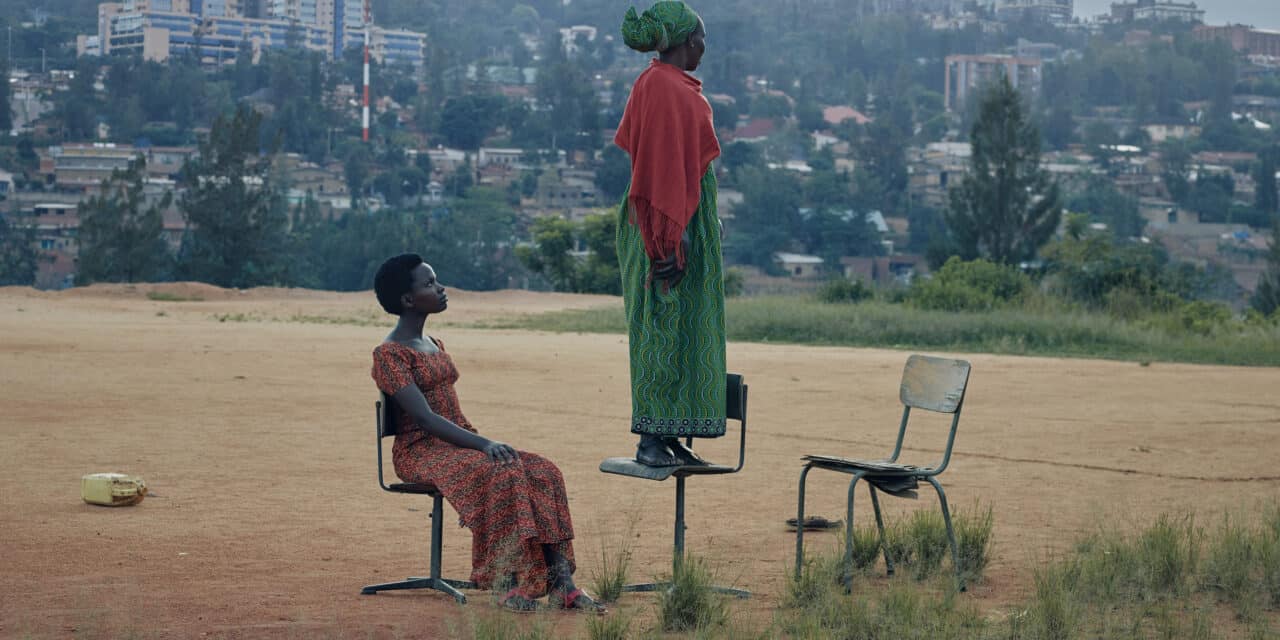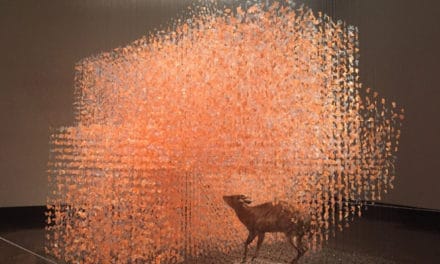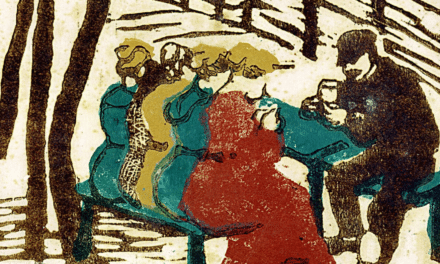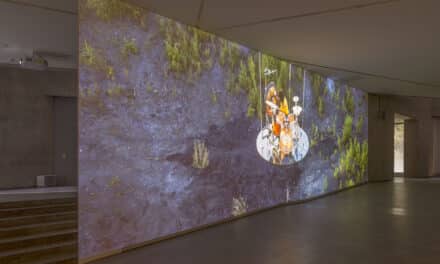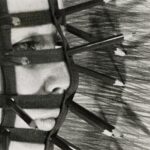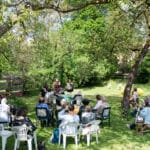On the occasion of the 30th anniversary of the genocide of the Tutsi minority and moderate Hutu in Rwanda, the Kunsthalle Rostock is opening the exhibition RWANDAN DAUGHTERS with photographs by Olaf Heine.
Almost one million people fell victim to the genocide in 1994, around 250,000 women were raped. Today, perpetrators and victims often live next door to each other. While women have gained influence in Rwandan society over the past 30 years, the victims of violence and their children often continue to live marginalized lives with the stigma of widows and orphans. Today, it is the daughters of the victims of abuse in particular who support their traumatized mothers and fight against the stigma - with unprecedented courage and boundless confidence in a society marked by severe trauma and ruled by authoritarianism. "Rwandan Daughters" is a testimony to the strength of these women.
German photographer Olaf Heine has captured the traces of the events in expressive images. The result is a series of photographs in which he portrays the victimized women and their daughters side by side near the sites of the crime. The photographs are more than just a physical image - they capture the process of coming to terms with the trauma and the emotions associated with it. As protagonists of the events and victims of the genocide, the women embody the dramatic event as central figures. Showing themselves and presenting themselves is an act of empowerment. In photography, as in the "Rwandan Daughters" series, the lens often serves as a metaphorical mediator or "moderator" between the photographer and those portrayed. For these women and their daughters, it was the first time they had posed to reflect their own personal fate. Olaf Heine's working methods and artistic accents play a decisive role here, as he, as a portrait photographer, embeds the testimony in a relevant and dignified perception. The rapprochement between the photographer and his subjects was carefully accompanied by the aid organizations "ora Kinderhilfe international e.V." and "Solace Ministries", which are active on site.
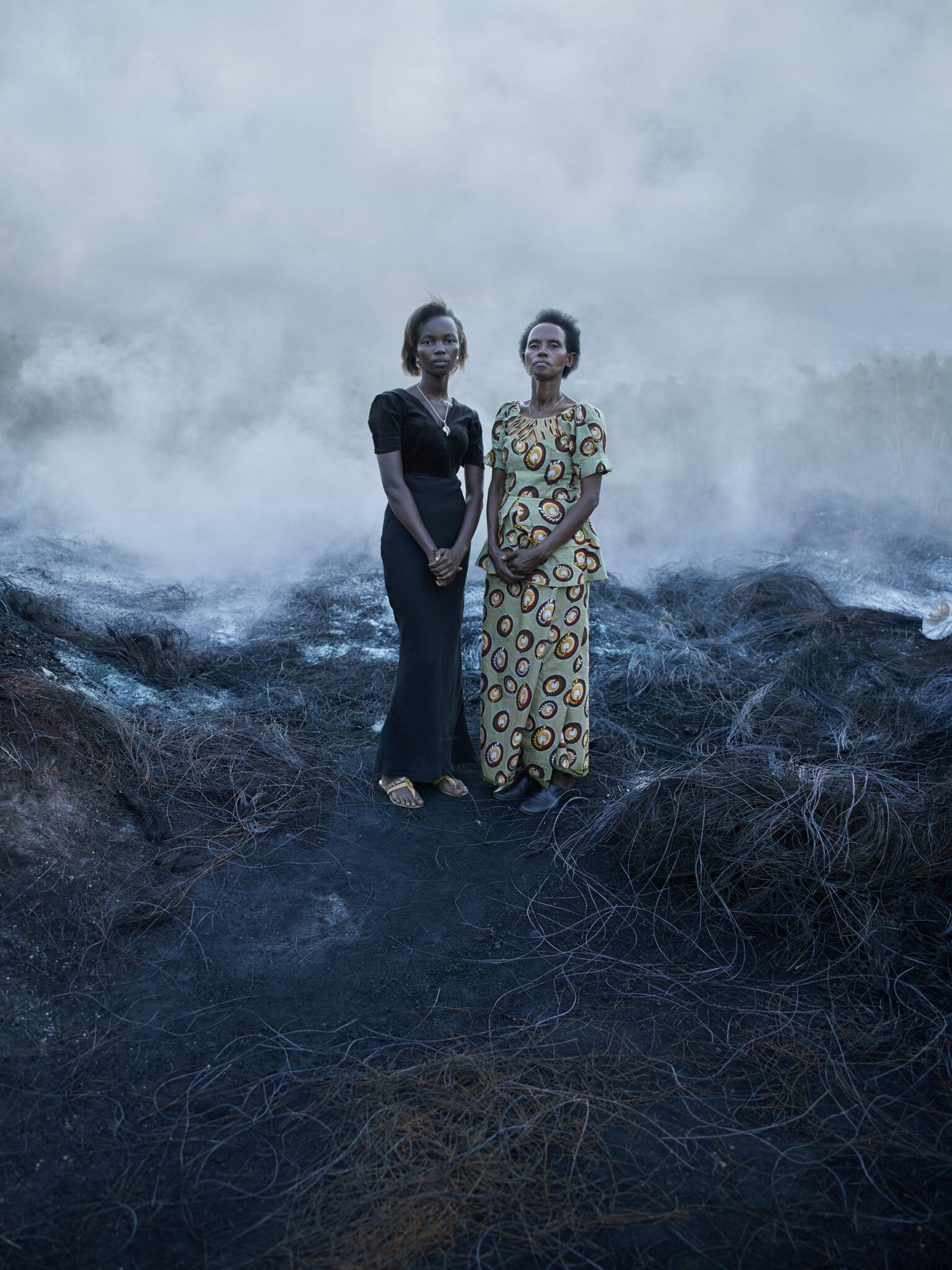
Godelieve A. with her daughter Clementine, Kigali, 2017 C-Print on Kodak Endura Paper 160 ×122 cm © Olaf Heine/ VG Bild-Kunst, Bonn 2024
The photos in "Rwandan Daughters" demonstrate a unique ability to tell stories without the need for words. Sometimes the mother and daughter look in different directions, sometimes there is tender touching and in other motifs the distance between the two is clearly noticeable. Their biological connection is visible through the sometimes great similarity of their faces. The clothing, which often catches the eye with a particular color palette or pattern, helps to convey the personality of those portrayed, their cultural background and the context. The images were not staged, but reflect their everyday lives on location. The passage of time is not visible when looking at the backgrounds - at the scene of the crime, traces of the events can still be seen in some cases - be it on the outskirts of the city, in industrial areas, at the place of residence or in the fields.
Of the numerous photographs by the artist, which were published in 2019 in the publication "Rwandan Daughters" by Hatje Cantz Verlag, 27 large-format images will be shown at the Kunsthalle Rostock. Some of them are being presented to the public for the first time in an exhibition. As an educational institution, it is important for us to deal with the consequences of socio-political and cultural conflicts in order to develop a comprehensive understanding of global issues that affect humanity in general. Olaf Heine's commitment and his documentation in Rwanda are essential elements in the process of clarifying and illustrating such personal and contradictory issues - such as the recurring and systematic violence against women in crisis areas, which resulted from a genocide 30 years ago and whose after-effects are still being dealt with. We are currently experiencing violence against women and civilians on a daily basis - especially since the Russian attack on Ukraine in 2022 and the Hamas terrorist attack on Israel in 2023. For the victims, the images of the 'Rwandan Daughters' are a symbol of their resurrection, their resistance and their voice.
March 17 to May 20, 2024
www.kunsthallerostock.de

